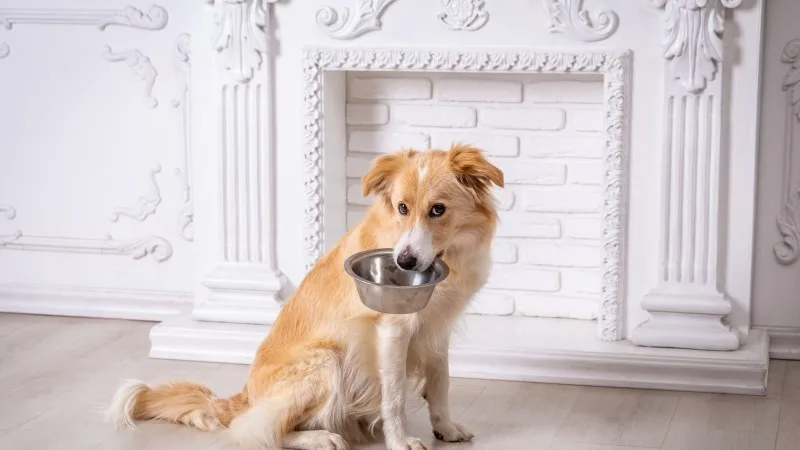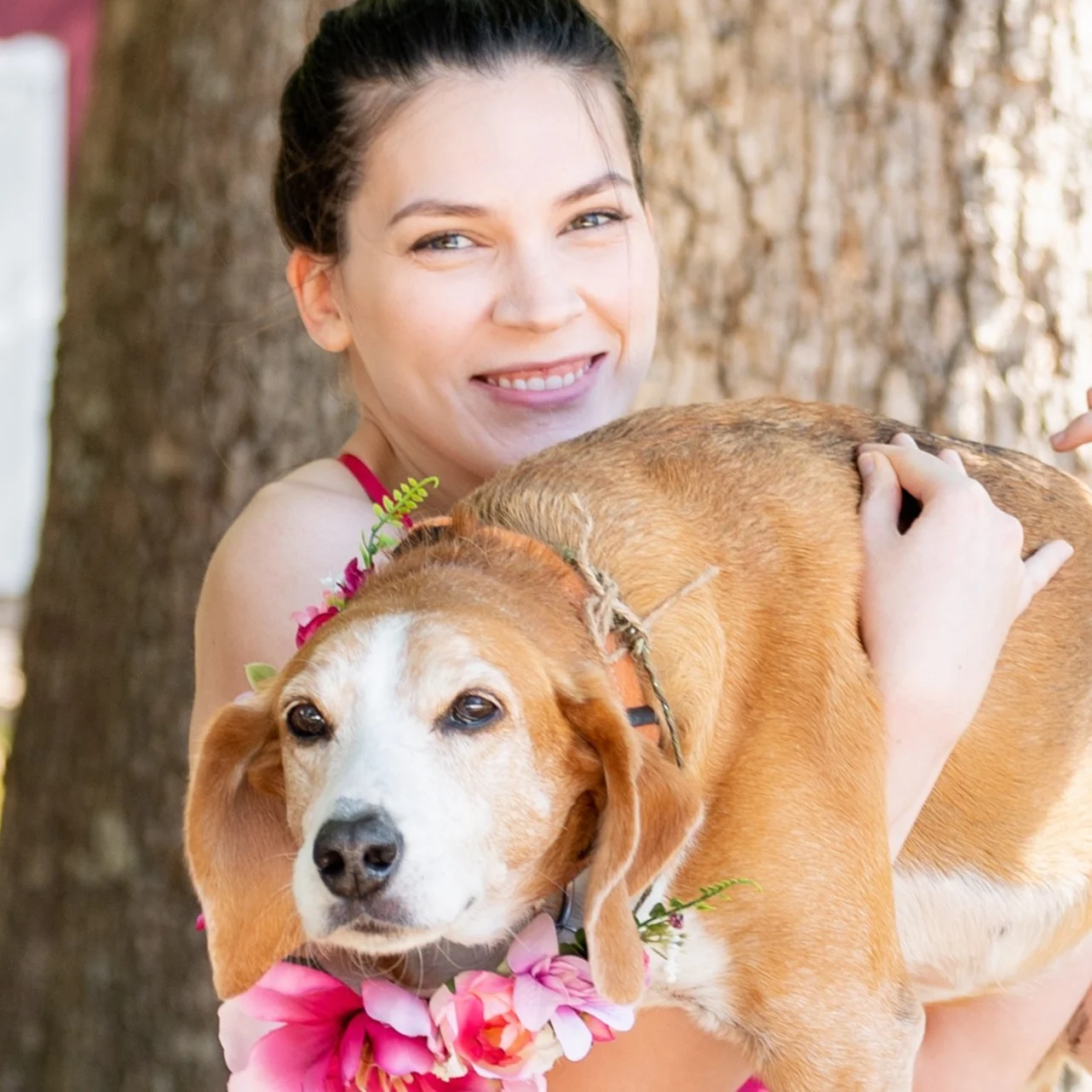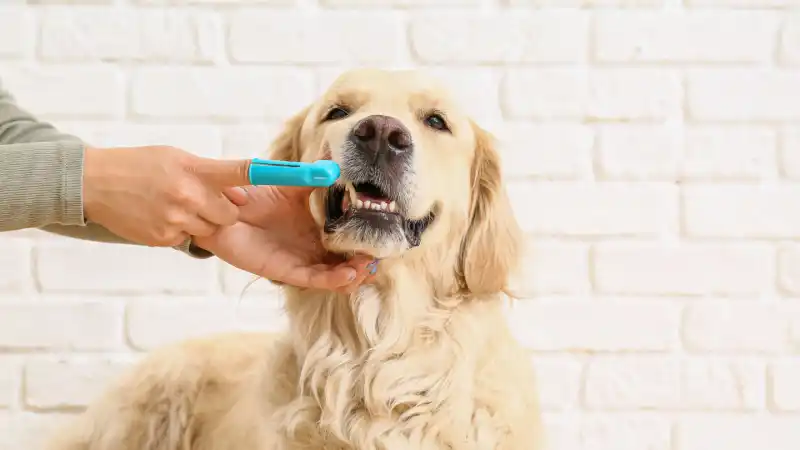What Is the Difference Between Puppy, Adult, and Senior Dog Foods?
Can puppies eat adult dog food? Discover the differences between puppy and adult food and when to transition your older pet to senior dog food.

With the dozens of varieties of dog food now available on the market, all claiming a multitude of benefits, you may be wondering if it makes any difference if you feed an age-designated food or not. After all, they're all dogs, and they'll chow down either way. So, does it matter if dogs from different age groups eat the same food?
Ensuring your puppy or dog is getting all of the nutrients and calories they need for their development is one of the most important things you can do to support your dog's long-term health. Let's break down how the different stages of life impact the type of food your dog needs to stay happy and healthy.
Can a Puppy Eat Adult Food?
If you already own a dog and just added a new puppy to your pack, it may seem practical to feed your new addition the same food that your adult dog already eats. However, even though your puppy may chow down with no apparent issues, your puppy is not eating the diet that fits their needs. For example, would you feed a newborn baby a plate of spaghetti and meatballs for dinner? Let’s hope not. Just like human babies, puppies need appropriate food for their small stature.
Your puppy has a small body, but needs big calories to support growth and development. So, while it may be tempting to let them chow away at anything they want since they're growing, it's important to make sure each mouthful provides the correct amount of protein and calories without overwhelming their little bodies. In addition, many small breed puppies require extra small food or else their tiny teeth will have trouble chewing.
Examine the differences between puppy and adult dog food labels to ensure you are buying the food that is right for them in their current life stage. Your puppy's early growth and development are what will set them up for the rest of their adult life. Every puppy is unique, so if you have questions about their diet or feeding schedule, always consult your breeder or veterinarian—they’re always ready to help!
When Should I Transition to Adult Dog Food?
A general rule to follow is that you can switch your puppy to adult dog food once they have finished growing. As your puppy approaches adulthood, they will no longer need the high-calorie puppy food to support their development and are now in a maintenance phase. Proactively changing their food when growth is completed rather than waiting until your dog displays weight gain will help them make a healthy transition to adulthood.
When you and your vet decide to switch to adult dog food, plan on slowly making the change over the course of 7 to 10 days by gradually increasing the ratio of adult dog food in your puppy's diet. If not, your puppy may experience loose stool as a result.
So, what else is different about adult dog food? According to the Association for American Feed Control Officials (AAFCO), your adult dog needs at least 18% of its daily calories composed of protein and at least 5.5% to be fat. Once you begin an adult dog food, the best way to tell if it is working for your dog is to watch their condition over time.
Here are some things to look for:
Is their fur full and glossy (not greasy)?
Are their energy levels normal?
Are stools normal in quality and quantity?
Are there guidelines on how much to feed your dog?
If everything looks right, you're good to continue using the dog food you have chosen (assuming your pup has also given their stamp of approval). If not, talk to your vet to see if they have any recommendations on what food might better fit your dog's needs.
When Should My Dog Start Eating Senior Dog Food?
If your dog is already between the ages of 6 and 10, they may now be considered a senior. In general, larger breeds tend to mature earlier than smaller breeds, becoming a little grayer around the muzzle or stiffer than they were in their youthful years. Since they're now a "senior," it’s probably a good time to switch to senior dog food, right? Maybe, but maybe not.
If you're already feeding your dog label-specified all-ages dog food, you can still keep feeding your dog the same food they know and love. So, what's the difference? As the AAFCO described in their guidelines, formulations for dog food are either for growth (puppy) or maintenance (adult). Some view the use of "senior" as just a marketing term. In fact, senior dogs still require the same 18% protein content as they did in their adult years.
However, some veterinarians may recommend switching your senior dog to a prescription diet. These diets are formulated with supplements to aid in age-related conditions, such as arthritis, joint problems, and weight loss. As these foods are tailored to special dietary needs, they may not follow the guidelines of the AAFCO. Only add supplements under your vet’s guidance, as supplements don’t have the same safety regulations as food and medication, meaning their effectiveness and safety may pose a risk.
Whenever you plan to make a change to your adult dog’s food or want to get your new puppy off to a good start, consult with your veterinarian so that you can develop a diet plan that meets your dog's unique needs. Your vet is a valuable resource that can answer all of your food questions and will be happy to help you narrow down which option is best for your dog.
Pet insurance can help pay for unexpected vet bills. Get a pet insurance quote from AKC Pet Insurance today (underwritten by Independence American Insurance Company) and prepare for accidents, illnesses, and much more.

Every Dog and Cat Deserves the Pet Insurance of Champions
Get prize-winning care for your pets.

As an avid fan of all things that meow or bark, Jodie uses her expertise in human and animal health to have a positive impact on the well-being of pets and their owners. Jodie lives in Durham, NC with her cat, "Noodle", and two dogs, "Lilly" and "Clementine".
READ MORE ARTICLES

